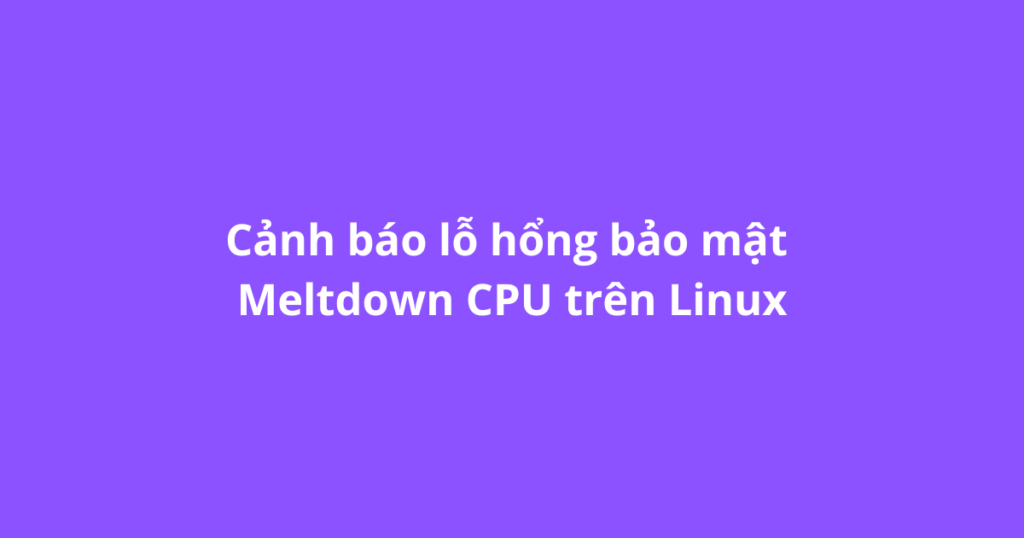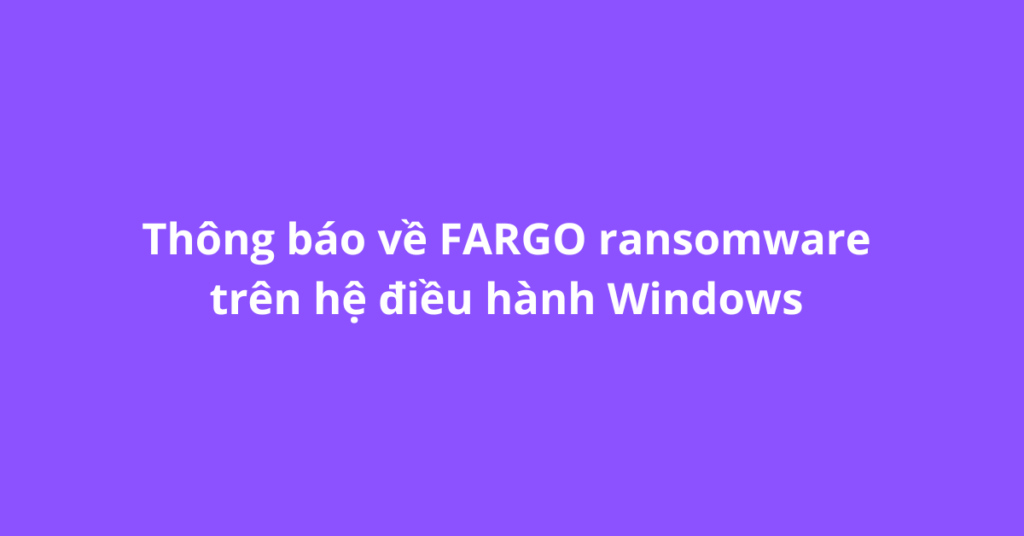Một lỗ hổng bảo mật nghiêm trọng của các CPU Intel vừa được phát hiện. Meltdown CPU Vulnerability CVE-2017-5754 phá vỡ toàn bộ sự độc lập giữa các ứng dụng và hệ điều hành.
Lỗ hổng này cho phép các chương trình truy xuất vào bộ nhớ và đọc được các thông tin bí mật của các ứng dụng khác và hệ điều hành.
Lỗ hổng này được công bố vào ngày 3 tháng 1 năm 2018. Được phát hiện từ rất nhiều các tổ chức bao gồm Google Project Zero.
Nội Dung
Meltdown security bug trên CPU Intel
Thông tin từ Xen project
Processors give the illusion of a sequence of instructions executed one-by-one. However, in order to most efficiently use cpu resources, modern superscalar processors actually begin executing many instructions in parallel. In cases where instructions depend on the result of previous instructions or checks which have not yet completed, execution happens based on guesses about what the outcome will be. If the guess is correct, execution has been sped up. If the guess is incorrect, partially-executed instructions are cancelled and architectural state changes (to registers, memory, and so on) reverted; but the whole process is no slower than if no guess had been made at all. This is sometimes called “speculative execution”.
Unfortunately, although architectural state is rolled back, there are other side effects, such as changes to TLB or cache state, which are not rolled back. These side effects can subsequently be detected by an attacker to determine information about what happened during the speculative execution phase. If an attacker can cause speculative execution to access sensitive memory areas, they may be able to infer what that sensitive memory contained.
Thông tin từ RHEL
There are three primary variants of the issue which differ in the way the speculative execution can be exploited. Variant CVE-2017-5754 relies on the fact that, on impacted microprocessors, during speculative execution of instruction permission faults, exception generation triggered by a faulting access is suppressed until the retirement of the whole instruction block. In a combination with the fact that memory accesses may populate the cache even when the block is being dropped and never committed (executed), an unprivileged local attacker could use this flaw to read privileged (kernel space) memory by conducting targeted cache side-channel attacks. Note: CVE-2017-5754 affects Intel x86-64 microprocessors. AMD x86-64 microprocessors are not affected by this issue.
Danh sách các Linux distro bị ảnh hưởng
- Red Hat Enterprise Linux 5 (including clones such as CentOS/Oracle/Scientific Linux 5)
- Red Hat Enterprise Linux 6 (including clones such as CentOS/Oracle/Scientific Linux 6)
- Red Hat Enterprise Linux 7 (including clones such as CentOS/Oracle/Scientific Linux 7)
- Debian Linux wheezy
- Debian Linux jessie
- Debian Linux stretch
- Deiban Linux buster, sid
- SUSE Linux Enterprise 11
- SUSE Linux Enterprise 12
- OpenSuse Linux based upon SUSE 12/11
- Fedora Linux 26
- Fedora Linux 27
- Amazon Linux AMI (Bulletin ID: ALAS-2018-939)
Hướng dẫn update kernel để fix Meltdown security bug
![]() Lưu ý: Thực hiện update kernel có thể gây ảnh hưởng tới các chương trình hiện tại đặc biệt là các chương trình yêu cầu phiên bản kernel cụ thể, nên tham khảo ý kiến của nhà phát hành các ứng dụng đang chạy trên hệ thống và yêu cầu họ hỗ trợ. Trước khi update kernel vui lòng thực hiện lệnh sau và ghi chú lại kernel hiện tại trong trường hợp lỗi ứng dụng cần phải rollback.
Lưu ý: Thực hiện update kernel có thể gây ảnh hưởng tới các chương trình hiện tại đặc biệt là các chương trình yêu cầu phiên bản kernel cụ thể, nên tham khảo ý kiến của nhà phát hành các ứng dụng đang chạy trên hệ thống và yêu cầu họ hỗ trợ. Trước khi update kernel vui lòng thực hiện lệnh sau và ghi chú lại kernel hiện tại trong trường hợp lỗi ứng dụng cần phải rollback.
$ uname -rCentOS/RHEL/Fedora/Oracle/Scientific Linux
$ uname -r
3.10.0-693.11.1.el7.x86_64
$ sudo yum update
$ sudo reboot
$ uname -r
3.10.0-693.11.6.el7.x86_64Fedora Linux
$ sudo dnf --refresh update kernel hoặc sudo dnf update
$ sudo dnf --refresh update kernel hoặc sudo dnf update
$ sudo rebootDebian/Ubuntu Linux
$ uname -r
$ sudo apt-get update
$ sudo apt-get dist-upgrade
$ sudo shutdown -r 0
$ uname -rArch Linux
# pacman -Syu
# rebootChúc Quý khách thành công. Tham khảo tại đây.
Nếu Quý khách cần hỗ trợ thêm thông tin, vui lòng liên hệ với bộ phận hỗ trợ kỹ thuật qua email support@vhost.vn hoặc tổng đài 1900 6806 – nhấn số 2.



